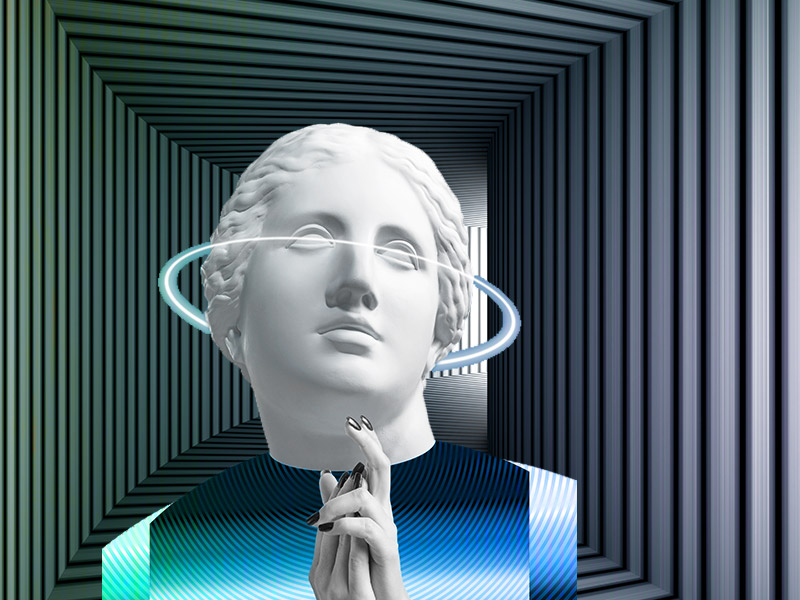The rise of social media has given birth to a new phenomenon: the influencer.
Influencers, individuals with the power to affect the purchasing decisions of others due to their authority, knowledge, or relationship with their audience, have become pivotal in the marketing and cultural landscape.
This article explores the evolution of influencer culture, from its early beginnings to its current state and future potential.

Early Beginnings
The Birth of Blogging
The concept of influencers dates back to the early days of the internet with the rise of blogs.
Personal blogs in the early 2000s allowed individuals to share their thoughts, experiences, and expertise on various topics, from fashion and beauty to travel and technology.
Bloggers like Tavi Gevinson and Perez Hilton gained significant followings, demonstrating that personal voices could attract large audiences and influence public opinion.
The YouTube Revolution
The launch of YouTube in 2005 marked a significant shift in influencer culture. Video content creators, or “YouTubers,” began to attract massive audiences.
Early YouTube stars like Michelle Phan and PewDiePie built large, dedicated followings, paving the way for influencers to become mainstream celebrities.
Their success highlighted the power of video content and the potential for monetization through sponsorships and ad revenue .
The Rise of Instagram and the Visual Era
Visual Storytelling
The introduction of Instagram in 2010 brought about a new era of visual storytelling.
Instagram’s focus on high-quality images and short videos allowed influencers to curate aesthetically pleasing feeds that resonated with audiences.
This platform became a hotspot for fashion, beauty, fitness, and lifestyle influencers who could showcase products and lifestyles in a visually appealing way.
Micro-Influencers
As Instagram grew, the concept of micro-influencers—individuals with smaller, highly engaged followings—emerged.
Brands began to recognize the value of partnering with these influencers, who often had more authentic connections with their followers compared to celebrities or macro-influencers.
Micro-influencers became an essential part of marketing strategies, especially for niche products and local businesses.
The Expansion Across Platforms
Diversification of Content
With the rise of other platforms like Snapchat, TikTok, and Twitch, influencers diversified their content. TikTok, in particular, became a breeding ground for viral content and new influencer stars.
Creators like Charli D’Amelio and Addison Rae gained immense popularity, showing the rapid growth potential on newer platforms.
The Professionalization of Influencing
The influencer industry became more professionalized over time. Influencers began to sign with talent agencies, collaborate with major brands, and launch their own product lines.
The establishment of influencer marketing agencies and platforms like Influencer.co and AspireIQ facilitated more structured collaborations between brands and influencers, solidifying the influencer’s role in modern marketing.
Economic Impact and Ethical Considerations
Economic Influence
The economic impact of influencers is substantial. According to Business Insider, the influencer marketing industry was valued at $13.8 billion in 2021 and continues to grow.
Influencers drive significant sales for brands, and their endorsements can lead to instant product sell-outs. This economic influence underscores the power of personal branding and social media reach.
Ethical Challenges
However, the rise of influencer culture also brings ethical challenges. Issues such as transparency in sponsored content, the promotion of unhealthy lifestyles, and the impact on mental health are ongoing concerns.
Regulatory bodies like the Federal Trade Commission (FTC) have implemented guidelines requiring influencers to disclose paid partnerships to maintain transparency with their audiences.
The Future of Influencer Culture
Technological Advancements
The future of influencer culture will likely be shaped by technological advancements. Augmented reality (AR) and virtual reality (VR) are poised to create new opportunities for immersive influencer experiences.
Additionally, artificial intelligence (AI) can help influencers and brands better understand audience preferences and optimize content strategies.
Continued Evolution
As social media platforms evolve, so will influencer culture. The rise of new platforms and features will continue to provide influencers with novel ways to engage with their audiences.
Moreover, the increasing emphasis on authenticity and social responsibility may drive influencers to adopt more ethical and sustainable practices.
Conclusion
The evolution of influencer culture reflects the dynamic nature of social media and digital marketing. From early bloggers and YouTubers to Instagram stars and TikTok sensations, influencers have continually adapted to changing technologies and audience preferences.
While the industry faces challenges, its impact on marketing and culture is undeniable. As we look to the future, influencers will undoubtedly continue to shape trends, drive consumer behavior, and influence the digital landscape.
Personal Opinion
In my view, the rise of influencer culture is a fascinating development in the digital age. It underscores how individual voices, once confined to personal circles, can now reach global audiences and drive significant economic impact.
This democratization of influence has allowed for diverse perspectives to flourish, contributing to a richer, more varied media landscape.
Influencers have provided valuable platforms for marginalized voices and niche interests that traditional media often overlooks.
However, this cultural shift is not without its pitfalls. The ethical challenges associated with influencer marketing, such as the need for transparency in sponsored content and the potential promotion of unrealistic lifestyles, cannot be ignored.
Regulatory bodies like the FTC have made strides in addressing these issues, but it is imperative for both influencers and brands to prioritize authenticity and ethical practices to maintain trust with their audiences.
Moreover, the mental health implications of constant social media engagement are a growing concern. The pressure to maintain a perfect online persona can lead to significant stress and anxiety among influencers and their followers.
As highlighted by multiple studies, the impact of social media on mental health is an area that requires ongoing attention and proactive measures from both platforms and content creators.
Looking ahead, the integration of emerging technologies like AR and VR in influencer marketing presents exciting possibilities for more immersive and engaging content.
However, it is crucial that these advancements are leveraged responsibly, ensuring they enhance user experience without compromising privacy or ethical standards.
Overall, while the evolution of influencer culture brings numerous benefits, it is vital to approach it with a balanced perspective.
Embracing the positive aspects of this phenomenon while addressing its challenges will be key to sustaining a healthy and vibrant digital ecosystem.
As influencers continue to play a significant role in shaping public discourse and consumer behavior, their impact on society will likely grow even more profound in the years to come.
References
- 1. Forbes: How Social Media Influencers Are Born
- 2. The Atlantic: The Rise of the Influencer
- 3. The New York Times: YouTube Stars Share the Secrets to Their Success
- 4. Pew Research Center: Social Media Use in 2021
- 5. The Guardian: How Instagram Changed the World
- 6. Harvard Business Review: The Explosive Growth of Influencer Marketing
- 7. Business Insider: Micro-Influencers Are the New Marketing Powerhouses
- 8. Social Media Today: The Power of Micro-Influencers
- 9. CNBC: TikTok’s Rise to Popularity
- 10. BBC: How TikTok Became the World’s Most Downloaded App




